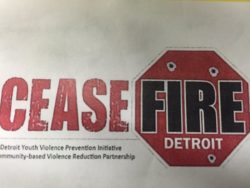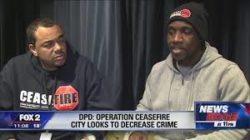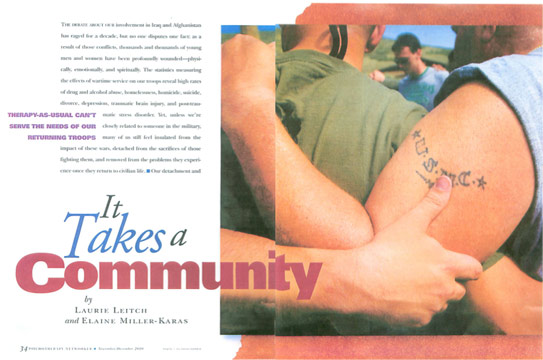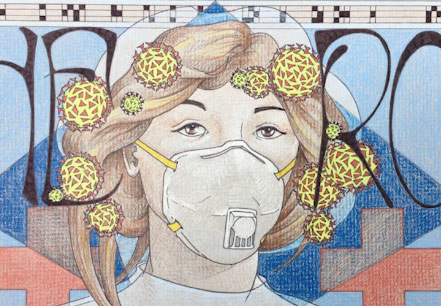 It is a sad but true fact that many youth in our largest cities do not expect to live beyond their early twenties. These are youth who are caught up in gang-related dynamics in which even a perceived slight or semblance of disrespect can set in place a process of violent retribution. In one community there is a “policy” called “two for one.” You kill one of ours and we will kill two of yours. Young people, often young men of color, describe feeling trapped in these dynamics, unable to leave the gang and yet knowing the chances are high that they will die young. One youth, when asked to write something for an English class, wrote his own obituary.
It is a sad but true fact that many youth in our largest cities do not expect to live beyond their early twenties. These are youth who are caught up in gang-related dynamics in which even a perceived slight or semblance of disrespect can set in place a process of violent retribution. In one community there is a “policy” called “two for one.” You kill one of ours and we will kill two of yours. Young people, often young men of color, describe feeling trapped in these dynamics, unable to leave the gang and yet knowing the chances are high that they will die young. One youth, when asked to write something for an English class, wrote his own obituary.
In this blog I’ll be sharing a project that Threshold GlobalWorks is proud to be a part of, Operation Ceasefire Detroit. This exciting program has incorporated our Social Resilience Model into its work in the highest risk precincts in Detroit, Michigan thanks to funding from the National Network for Safe Neighborhoods and the City of Detroit.
Neighborhoods that are experiencing high rates of gun violence are often described as places of despair and danger. And, while despair and danger can certainly be part of what people feel, it is often overlooked that communities that are riddled with gun violence also have many strengths. When a community is viewed through the lens of strengths new options for addressing the risks emerge.
One heartening intervention that explicitly draws upon the strengths of these communities is Operation Ceasefire. Operation Ceasefire is a community policing initiative that is part of the National Network for Safe Communities based at the John Jay College of Criminal Justice. Originally implemented in 1996 in Boston, Massachusetts, the program is specifically aimed at youth gun violence as a large-scale problem and builds on the strengths and engagement of community members as allies in building safe neighborhoods.
The Ceasefire projects, embedded in local police departments, are designed to decrease violent crime and gun violence via a specific protocol developed by David Kennedy and based on a detailed analysis of crime statistics and enlistment of a collaborative network of civic agencies and neighborhood residents. Youth in these high risk neighborhoods are approached and engaged in a way that supports first creating safety for them and then helping them exit a violent life style.
 Community members are enlisted in intense group interventions that highlight the personal toll that the violence has exacted. Services are provided that support an orientation to a violence-free future that includes school and work.
Community members are enlisted in intense group interventions that highlight the personal toll that the violence has exacted. Services are provided that support an orientation to a violence-free future that includes school and work.
Thus far, TGW has presented a large group orientation meeting for many key community stakeholders in Detroit describing the SRM, its practical RZone skills, and the neuroeducation that is the foundation of both. SRM training has also been provided to Operation Ceasefire Community Outreach Workers. These outreach workers work hand in hand with the police department. The situations they go into are usually high risk and high stress. They are applying the RZone skills to their own self-care as well as peer-to-peer. The next phase of our work is a 9 month Train the Trainer program that begins at the end of July.
A component of the Train the Trainer that I am particularly excited about is the Youth Mentoring Component. Each Ceasefire Trainer in Training will bring a youth to all of our training sessions. The youth will learn right along with their mentors and will, hopefully, spread the self-regulation skills with the support of the Ceasefire SRM trainers.
Check back to read more about this project. Also, in upcoming blogs I’ll be reporting on our continuing work in Rwanda where our Train the Trainer will begin in October. We have been engaged in implementing the PeaceBuilder Model in Rwandan prisons for the past two years.

